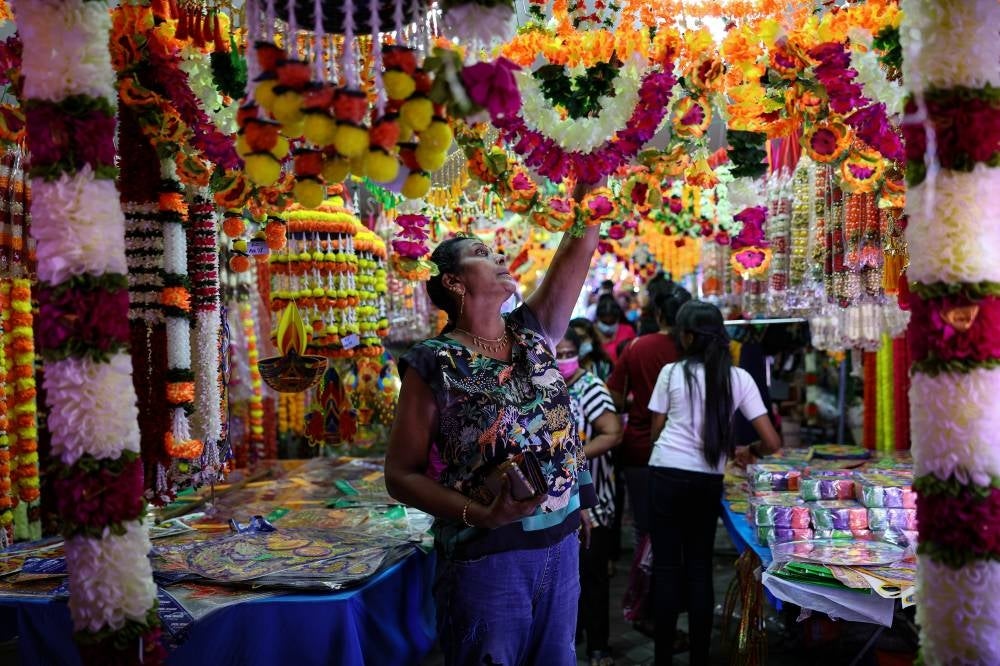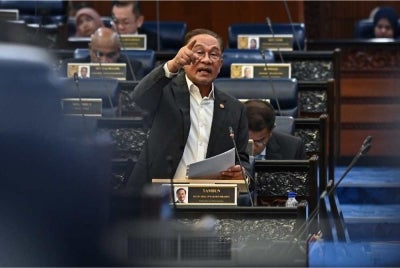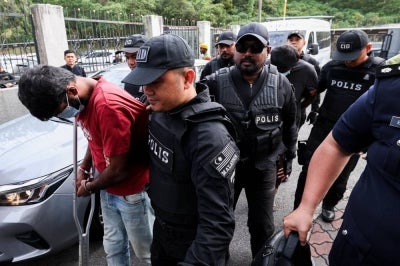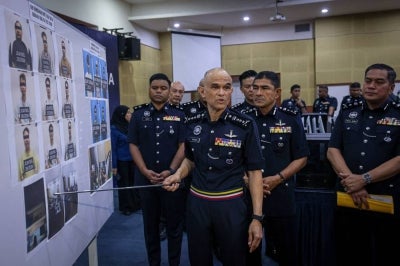Back to grander Deepavali celebration this year with worst of Covid behind

KUALA LUMPUR - Deepavali is another major celebration in Malaysia that is not only celebrated here on Monday (Oct 24) but by Hindus from all over the world.
After ‘muted’ celebrations for the past two years due to the Covid-19 pandemic raging then, Malaysians will once again usher in the festival of lights on a grander scale this year with the situation having abated although much of the fireworks are being illuminated at election campaigns that have kicked off since the dissolution of Parliament on Oct 10 to pave the way for the 15th General Election, which will be held on Nov 19.
Deepavali in Sanskrit literally means 'Festival of Lights' where Hindus illuminate their homes using clay lamps with wicks called "diyas" or other forms of lights (the current trend is LED lights). The golden glow of these lamps not only signifies the warmth that light can bring but signify the accomplishment of all material attributes, be it riches and fame, or knowledge, success and peace.
The entrance of houses is also decorated with lovely traditional Rangoli motifs (kolam) to welcome Lakshmi, goddess of wealth and prosperity. The colourful festival celebrated by Hindus worldwide usually falls around late October or early November and this year the auspicious day falls on Oct 24 (Monday).
The Hindus consider Deepavali, also called Diwali by north Indians, as one of their most important festivals but there is a legend behind this festival that claims Narakasura, a demon king, ruled the kingdom of Pradyoshapuram with a clenched iron fist.
Under his rule, the people suffered hardship and the king even imprisoned women in his palace. Upon seeing the people's suffering, Lord Krishna set out to destroy the demon king and the day Narakasura died was celebrated as Deepavali - the triumph of good over evil!
Preparation for Deepavali usually starts at least two to three weeks before the festival as houses are cleaned, some go the extra mile to renovate their houses or just add a new coat of paint, curtains, sofa, etc.
Usually, the family will shop for new clothes and accessories and add decorative items to their homes and draw 'kolam' at their entrance.
The 'kolam' (intricate colourful motifs) includes design elements that are purely geometrical with dots, lines, triangles, squares, circles, and other auspicious symbols like the swastika, peacock, conch shell, lotus, trident, footprint and star, relating to expressions of cosmic harmony and spiritual energy in certain Vedic practices.
Coloured rice, grated coconut, with silver or even gold dust, may be used to make the patterns other than rice flour and these patterns are traditionally laid out on the floor in certain areas like around the shrine, entrance and on dining mats by women to add gaiety to the celebration.
On this auspicious day, Hindus usually wake up early and the first ritual is the gingerly oil bath which is an important feature that has withstood the test of time despite the younger generation's preference for soap and shampoo.
Next, they dress in their new clothes - men wearing dhoti or kurtas, women in silk sarees, Punjabi suits, lengha, Karisma suits of various colour shades - and head to temples. Hindus particularly dislike dressing in black on this auspicious day.
Hindus would also pay their respects to the elderly and the deceased. This is also an important ritual.
The open house visits are most certainly an interesting activity on this auspicious day as one will get to taste a wide variety of delicious Indian cuisine and cookies.
Visitors are bound to be served with tempting sweets and cookies with 'murukku' being the signature savoury because it is not only popular among Indians but even the Malays and Chinese have taken a liking towards this crispy and crunchy savoury.
Since Indians are synonymous with spicy food and indulgence in favourite fare like chicken or mutton curry, prawn sambal and fish head curry, such dishes are a must on this day. In homes of Hindus who are vegetarian, popular dishes like thosai, idly, puree and naan satisfy their palate.
Among countries where the festival is grandly celebrated or observed in its own unique ways are India, Malaysia, Singapore, Sri Lanka, Mauritius, Fiji, Guyana, Thailand, South Africa, Trinidad, Australia, the United Kingdom, United States and Canada to name a few.
Deepavali, which is an auspicious day for the Hindus and is celebrated together with other Malaysians of all backgrounds, has become a major festival in Malaysia and will continue to be one. - BERNAMA
Download Sinar Daily application.Click Here!














